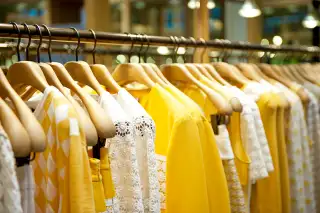How to Make the Most Money Being a Mystery Shopper

Mystery shopping has been a popular way to net some extra cash and perks for decades. The only real qualification is the ability to go shopping and evaluate how good (or bad) the experience goes.
Now that providers connect with shoppers online, there’s an even lower bar to entry for mystery shopping opportunities. Unfortunately, this also makes it easy for scam artists to rip off would-be mystery shoppers. But with a little vigilance, any detail-oriented person can pick up a steady side gig evaluating everything from drive-thrus to day spas.
“This is meant to be supplemental income,” says Mike Mershimer, president of MSPA Americas (formerly the Mystery Shopping Providers Association of North America). People just starting out in the business might make as little as $5, so depending on how long the project costs it could be tantamount to less than minimum wage. But the work is generally very easy, and along with the money you earn, in many cases you're rewarded with freebies ranging from restaurant meals to oil changes.
It’s big business, according to Mershimer. “There are millions of people around the country that do various types of mystery shopping,” he says. Retail and restaurant chains, service providers, and even cruise lines and airlines are among the many kinds of enterprises that pay mystery shoppers to give their services and products a try and evaluate how good they are.
Most mystery shopping involves going into a store or a restaurant to make a purchase. But there are many opportunities for people who don't want to travel far from home, and mystery shopping can be a good supplemental income source for people who don’t have a car or are disabled. Mershimer says some companies use mystery shoppers to check up on the quality of their customer service call centers; others use shoppers with disabilities to see if their stores, restaurants, hotels or other facilities are meeting ADA compliance.
Here's what you need to know — and watch out for — if you're just getting started.
Don’t accept unsolicited offers. The rule of thumb is that if they reach out to you, they’re probably not the real deal. Feel free to ignore mystery-shopping offers that arrive out of the blue in your email in-box because there's a strong likelihood they're scams. Instead, you can and should browse legitimate gigs at the MSPA Americas site. “For mystery shopping, I make sure that there are real reviews from other users” who have worked with the companies coordinating the shopping evaluations, advises Michelle Schroeder-Gardner, who runs the site MakingSenseofCents.com. She recommends that do some quick research on the company at GlassDoor or the Better Business Bureau.
Expect to work your way up. While entry-level “shops” like visiting a McDonald’s and reporting back on the experience might pay only a few bucks, you can make more than this if you keep at it, says Donna Freedman, author of the financial-advice book, Your Playbook For Tough Times. “First, you need to take the lower-paying gigs and prove yourself to be reliable,” she says. Attention to detail is critical too. “If you do it wrong or even skip a few steps, you might not get paid for the shop and you probably won’t be given other jobs,” she warns. Most companies expect a lot of detail, down to the temperature of the coffee you ordered and exactly how many minutes you waited before being greeted by an employee.
The mystery-shopping gigs with the best perks and highest pay get to be picky, and they look to shoppers who are reliable and have lots of experience. Bear in mind, though, that it's unnecessary to pay for any official MSPA certification. The organization's certification courses start at $25, and they will educate you on the basics, but the MSPA states clearly that they're not necessary for getting hired. "We do not know of any company who will not hire you (assuming you are qualified) if you are not certified," the MSPA's FAQ page explains. "If you are a good shopper for a good company, the MSPA does not see you losing [mystery shopping jobs] because you are not certified."
Don’t take payment in advance. This is a common scam circulating now, Mershimer warns. The shopping assignment will ostensibly be for a financial services provider: The shopper is asked to deposit a cashier’s check or similar for a large amount into their personal account. They’re told to keep a large amount — say, $500, an amount that should be a red flag in and of itself — and put the rest and send it off on a prepaid card refill or money order. A few days later, the check bounces, and the shopper is on the hook for the entire amount.
Expect to pay upfront for products. “When you deal with legitimate mystery shopping companies, you never pay them, but you always need to lay out money if a purchase is involved in the shop,” says Edgar Dworsky, founder and editor of ConsumerWorld.org. You will get reimbursed, he says, but it can take as long as a couple of months. Keep that in mind if your cash flow situation is tenuous.
Don’t click on links. “Scammers are going into legit companies’ websites and spoofing their sites,” Mershimer warns. So you might get an email that claims to be from a legitimate mystery shopping operation. But when you click on the link, you’re instead taken to a realistic looking dummy site that prompts you for your personal information, which can be used for fraud and identity theft.
Mershimer says that if you’re unsure if an email or offer is legitimate, do not to click on the link sent in any message. Instead, type in the URL for the company’s website in your browser and look for mystery-shopping options there.